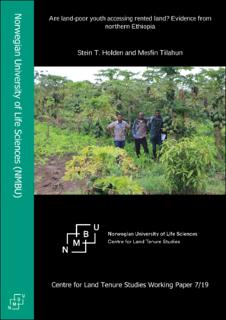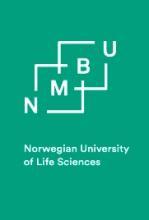Resource information
Continued strong population growth in already densely populated rural areas in parts of Sub-Saharan Africa makes it harder for youth to choose agriculture as their main source of income. We investigate whether near landless youth still can access rented land as a complementary source of income. We utilize a unique data of rural youth that have been allocated rehabilitated communal land to form formalized business groups for joint business activity. They rely on complementary sources of income and land renting is one of these. Utilizing a sample of 3500 youth business group members from 360 youth business groups collected in 2016 and 2019 in five districts in Tigray region of Ethiopia, we find that 42% of the youth had access to rented land in 2016 and 47% in 2019. Average area rented was 0.66ha in 2016 and 0.74ha in 2019. Land renting is the most important source of income for 17 and 16% of the youth in 2016 and 2019 and the second most important source of income for 14 and 20% in 2016 and 2019, respectively. Access to rented land is constrained, however. Male youth who own oxen are much more likely to be able to rent in land.
Utilizing a trust game to elicit trust and trustworthiness of the youth, we also found a positive association between trustworthiness and access to rented land. Trust reduces transaction costs and more trustworthy youth have better access to rented land. The importance of trust is also illustrated by the dominance of kinship contracts and contracts with close neighbors reducing the costs of monitoring tenants.
The prohibition of land sales in Ethiopia limits the potential of the “agricultural ladder” to facilitate that youth can climb out of poverty through purchase of land. The youth group model may, however, help to overcome the barrier associated with very small and shrinking farm sizes and facilitate the development of larger and more professional land-based production units. Land renting is one of the rural livelihood diversification options that youth pursue and that help to sustain the youth business groups.


